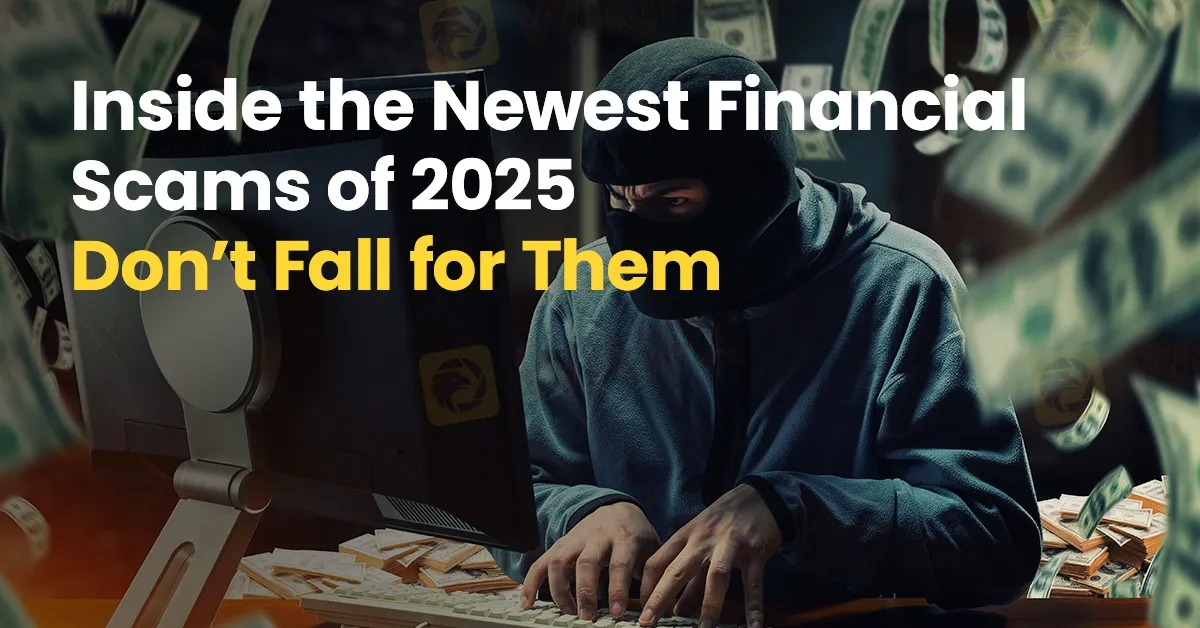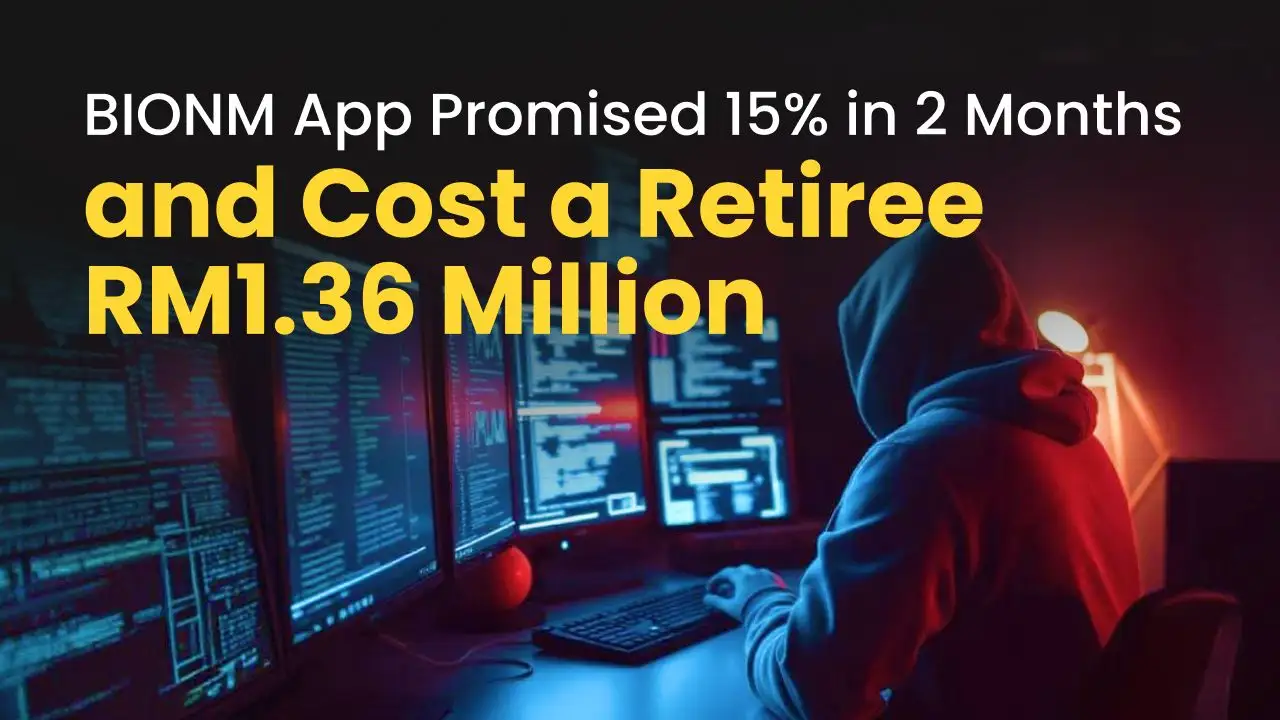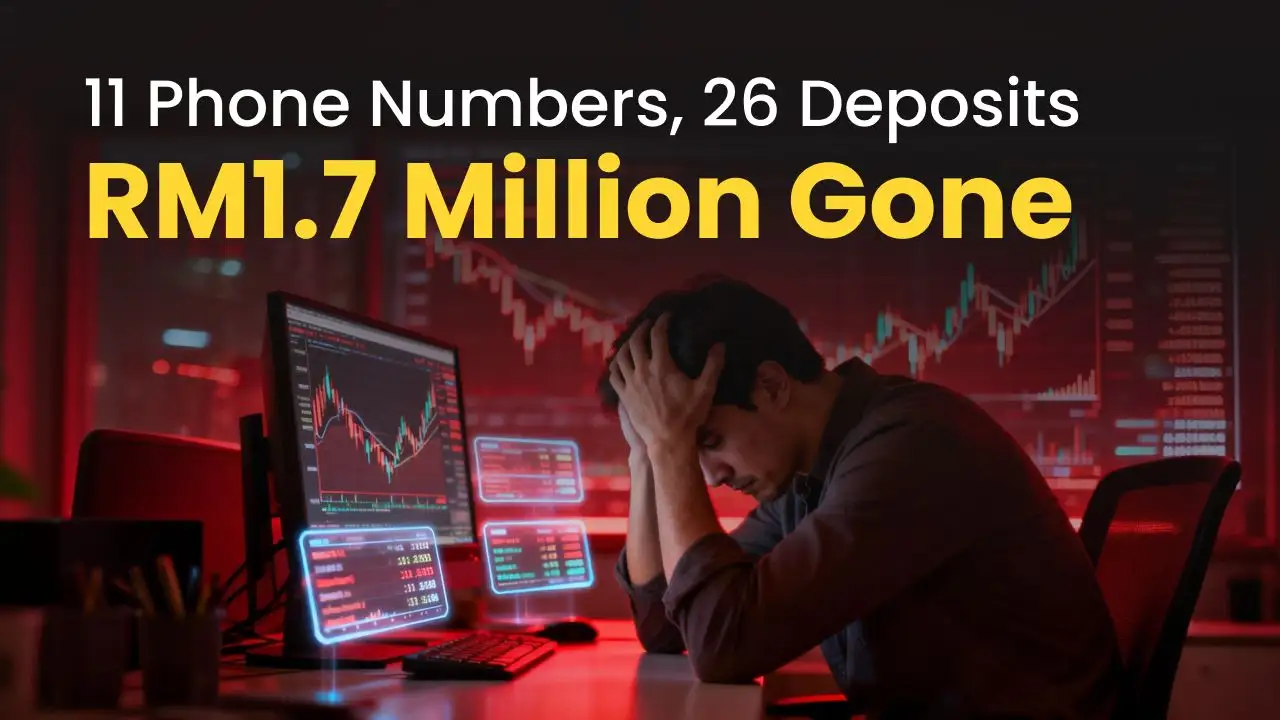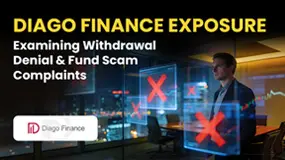BIONM App Promised 15% in Two Months and Cost a Retiree RM1.36 Million
A 70 year old manager has lost RM1.36 million after falling victim to an online investment scam through a mobile app named ‘BIONM’.
简体中文
繁體中文
English
Pусский
日本語
ภาษาไทย
Tiếng Việt
Bahasa Indonesia
Español
हिन्दी
Filippiiniläinen
Français
Deutsch
Português
Türkçe
한국어
العربية
Abstract:The financial landscape in 2025 is more sophisticated than ever, but so are the scams designed to exploit traders, investors, and everyday consumers. With advancements in artificial intelligence, deepfake technology, and decentralised finance (DeFi), fraudsters have found new ways to deceive even the most cautious individuals. From AI-powered Ponzi schemes to fraudulent trading platforms, here are the most commonly seen scams of 2025 and how you can protect yourself.

The financial landscape in 2025 is more sophisticated than ever, but so are the scams designed to exploit traders, investors, and everyday consumers. With advancements in artificial intelligence, deepfake technology, and decentralised finance (DeFi), fraudsters have found new ways to deceive even the most cautious individuals. From AI-powered Ponzi schemes to fraudulent trading platforms, here are the most commonly seen scams of 2025 and how you can protect yourself.

Ponzi schemes are nothing new, but in 2025, they have evolved with AI-generated trading bots that claim to deliver guaranteed profits. Fraudsters lure victims by showcasing ‘successful’ automated trades, using deepfake videos of well-known financial experts endorsing their schemes. The reality? These bots often do nothing more than shuffle money between accounts before the scam collapses. Always verify a platforms legitimacy through regulatory bodies before investing.

The rise of AI chatbots has allowed scammers to create highly convincing fraudulent brokerages. Unlike traditional scams that rely on high-pressure sales tactics from human representatives, AI-driven scam brokers can engage with victims 24/7, using sophisticated natural language processing to gain their trust. They promise zero commissions, high leverage, and ‘exclusive’ investment opportunities—only for traders to realise too late that withdrawals are impossible. Checking for regulatory licensing and user reviews on independent financial watchdog websites remains crucial.

Social media remains a breeding ground for scams, but in 2025, deepfake technology has taken fraud to another level. Scammers now create highly realistic AI-generated videos of famous financial figures promoting fake investment opportunities. Whether its a billionaire investor seemingly backing a new crypto token or a respected economist recommending a dubious forex platform, these scams are becoming alarmingly convincing. Before taking any financial advice, verify its source through reputable channels.

The world of DeFi remains a hotbed for innovation—and exploitation. In 2025, scammers are launching DeFi projects that appear legitimate, attracting investors with promises of high-yield returns. Once enough money is pooled into the project, the developers suddenly withdraw all liquidity, leaving investors with worthless tokens. With DeFi operating outside traditional regulatory frameworks, due diligence is essential. Investigating a projects smart contract audits, team background, and community engagement can help avoid falling victim to such schemes.

As more countries roll out Central Bank Digital Currencies (CBDCs), scammers are taking advantage of public confusion. Fake websites and phishing emails now mimic official government portals, tricking users into ‘registering’ for early access to digital currencies. These scams often lead to identity theft and financial losses. To stay safe, always rely on official government websites and announcements regarding digital currency adoption.

In summary, the scams of 2025 are more deceptive and technologically advanced than ever before, making vigilance a necessity rather than an option. Whether through AI-generated fraud, deepfake deception, or crypto-based scams, fraudsters continue to refine their methods. Staying informed, verifying sources, and conducting thorough due diligence remain the best defences against financial scams. As technology evolves, so too must our ability to detect and avoid fraudulent schemes. To prevent falling victim to fraudulent schemes, using tools like WikiFX can be a game-changer. WikiFX provides detailed information on brokers, including regulatory status, customer reviews, and safety ratings, allowing users to verify the legitimacy of any investment platform before committing their money. With access to in-depth insights and risk alerts, WikiFX equips potential investors with the resources to make informed decisions and avoid unauthorised or unlicensed entities. By checking with WikiFX, users can confidently protect their savings and avoid the costly traps set by unscrupulous investment syndicates.

Disclaimer:
The views in this article only represent the author's personal views, and do not constitute investment advice on this platform. This platform does not guarantee the accuracy, completeness and timeliness of the information in the article, and will not be liable for any loss caused by the use of or reliance on the information in the article.

A 70 year old manager has lost RM1.36 million after falling victim to an online investment scam through a mobile app named ‘BIONM’.

A 45-year-old businessman has lost more than RM1.7 million in an alleged online investment scam.

A Malaysian activist has alleged the emergence of a new scam compound near Myawaddy, Myanmar, dubbed “KK Park 2.0,” highlighting how fraud syndicates may be adapting to regional crackdowns by shifting operations to remote, heavily secured locations.

Did you find a contrasting difference between Diago Finance’s deposit and withdrawal processes? Were deposits seamless, but withdrawals remained difficult? Did you fail to receive your funds despite paying extra fees? Did the Saint Lucia-based forex broker scam your hard-earned capital? You are not alone! Many traders have expressed concerns over the alleged illegitimate trading activities carried out by the broker. In this Diago Finance review article, we have investigated some complaints against the broker. Take a look!
